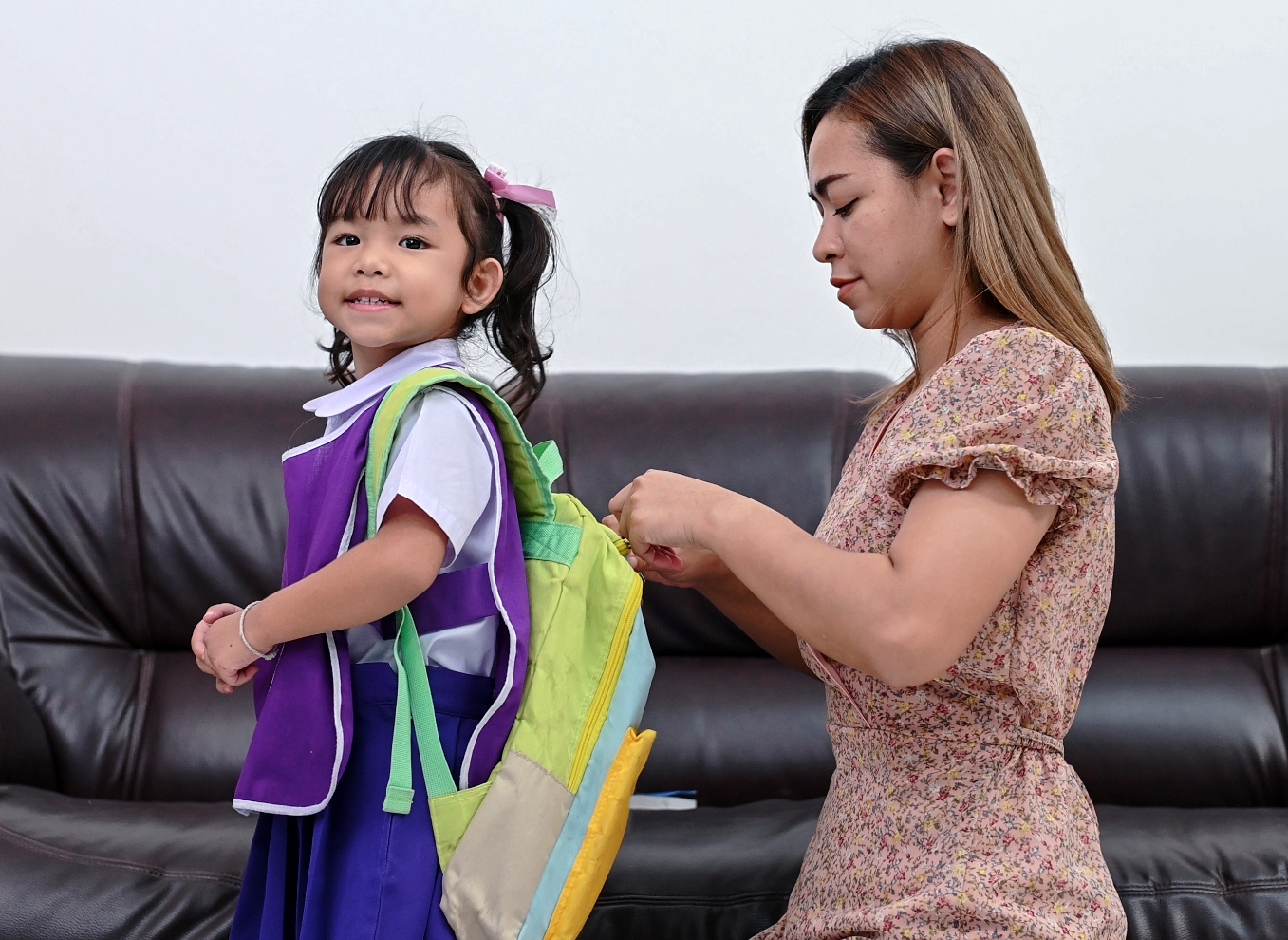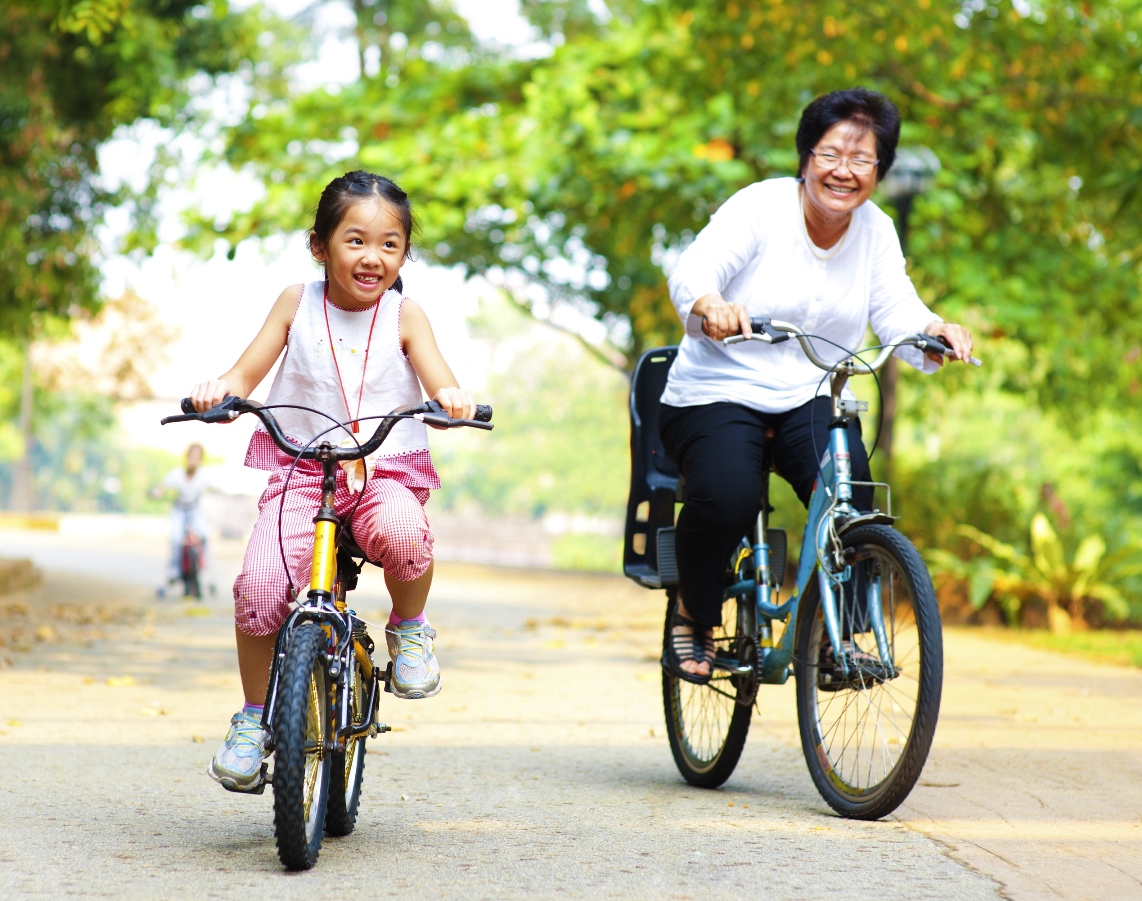Healthy Family, Happy Life Resources
In this section:
-
– Healthy lunchboxes and snacks
-
– Tips to get children to eat vegetables
-
– Getting children involved
School readiness tips
Starting school is a big milestone for children and your family. The transition between learning environments can be both challenging and exciting. The Department of Education provides useful and practical programs and activities that families can use to help children transition to school.
Some tips include:
-
• Your child is probably feeling excited as well as a bit nervous about starting school. If you start getting your child ready in the weeks and months before the first day, it can help with any mixed feelings. Reading books about school together can help you talk with your child about their feelings
-
• When children are starting school, orientation activities help them get familiar with the school environment
-
• Practical preparations help too, like organising uniforms, stationery, lunch boxes and bags well ahead of the first day
-
• School is a big transition, your child might need extra emotional support and rest in the first few weeks
-
• When your child starts school, it’s a big change in your family life. It’s normal if you feel a little worried or sad too. Sometimes it helps to talk with other parents about how you’re feeling
Many schools, preschools and child care centres plan formal programs to assist children to transition to school easily and smoothly. Each school operates within its own local context, so transition programs will vary from school to school. This may include school visits, parent information sessions and buddy programs.
For more information see the ‘Ready for School’ family resources in English, and in Chinese.

Healthy eating
Young people need to eat a wide variety of healthy food from the five food groups; fruit, vegetables, cereals and grains, dairy and protein. Eating food from the five food groups will ensure they get the nutrition they need for health, growth and development. Find out more information on the five food groups in English, and in Chinese.
Healthy lunchboxes and snacks
A healthy lunchbox should contain a variety of foods from the five food groups. Children eat one third of their daily intake of food at school, so a lunchbox is a great opportunity to provide nutritious meals and snacks for healthy growth and development.
Healthy lunchboxes are important because they:
-
• Can give your child energy to focus and learn in the classroom
-
• Provide long lasting energy for your child across the day for them to be able to keep active and play
-
• Help set your child up to have good eating patterns for later in life
-
• Provide an opportunity for your child to build confidence and become familiar with new foods
Use this factsheet available in English and in Chinese, as a guide to help you pack a healthy lunchbox. Find more tips in the Choose Healthy Snacks fact sheet in English, and in Chinese.
Tips to get children to eat vegetables
While more than half of children in NSW are eating enough servings of fruit per day, only 5% of children are eating the recommended servings of vegetables per day.
Some examples of how to incorporate vegetables in the lunchbox and to ensure they get eaten include:
-
• Offer vegetables to your child every day and spread them across the day including at breakfast, in the lunchbox and dinner time
-
• Encourage enjoyment with vegetables by offering a range of different colours and textures to your child to make them more appealing
-
• Get creative by keeping vegetables fun and interesting, for example, cutting vegetables into different shapes
-
• Get your child involved in food preparation to encourage them to eat what is offered
-
• Show your child that you enjoy eating vegetables too
Find more tips in the Eat More Fruit and Vegetables fact sheet in English, and in Chinese.

Physical activity
For health benefits school age children need at least 60 minutes of moderate to vigorous intensity physical activity every day. Moderate to vigorous activities are activities that make you huff and puff, make your heart beat faster and sweat is seen on your skin.
Physical activity offers many benefits for your child’s health, wellbeing and development.
Physical activity can include:
• Organised sports
Organised sports include sports that are held after school or weekend activities like netball, football, martial arts or dancing. Organised sports are beneficial for school aged children as they can help your child:
-
– Develop self-esteem and confidence
-
– Improve coordination and movement skills
-
– Get an opportunity to learn to be part of team and to make new friends
• Unstructured active play
Unstructured active play opportunities are often more affordable then organized sport and can be easier to fit into a busy family life. Unstructured active play opportunities include:
-
– Running or chasing
-
– Playground activities
-
– Walking or riding to school or around the neighbourhood
-
– Play opportunities such as backyard cricket
Getting school aged children involved in physical activity
There are many ways to encourage your child to get involved in physical activity including:
-
• Being active as a family together – providing opportunities to be active and finding activities that your whole family enjoys
-
• Offer time and space for free play
-
• Provide plenty of varieties of physical activity
-
• Role a model a positive attitude to sport at school and after school
-
• Be encouraging at organized sport
-
• Be active yourself as your child will notice and will likely follow your lead
Find more tips in the Get Active Each Day fact sheet in English, and in Chinese.

Reducing screen time
Children should have no more than 2 hours per day of screen time.
Screen time includes any time spent on a device with a screen that is being used for recreational purposes (e.g. phone, tablet, laptop, gaming device). This does not include screen time needed for school work.
Find more tips in the Turn Off the Screens fact sheet in English, and in Chinese.
Improving sleep
Sleep is essential for growth, development and concentration. School aged children aged 5 to 13 years should get 9 to 11 hours of uninterrupted sleep
It is important to build healthy sleep patterns, it is recommended to:
-
• Have a consistent bedtime and wake up time
-
• Avoid screens 1 hour before sleep
-
• Keep screens out of the bedroom
Find out more information on sleep strategies in English, and in Chinese
Free programs
Go4Fun
Go4Fun is a free program for NSW children aged 7 to 13 who are above a healthy weight, and their families. Run by trained health and community professionals, it’s a fun way to build self-esteem and learn about eating well, staying active and living a healthy life.
Go4Fun takes place during school terms, usually after school. Sessions run once a week for two hours, over a ten-week period. In the first hour, children and adults learn about healthy eating for the whole family. In the second hour, children enjoy game-based activities, while the adults discuss how to work on better health at home.
To register for Go4Fun visit https://go4fun.com.au/ or call 1800 780 900
Active Kids Vouchers
The Active Kids vouchers are available to all NSW school-aged children and young people. Two $100 vouchers are provided free from the NSW Government to be used towards sport and physical activity. Find out more about the vouchers and how to claim them in English, and in Chinese.
Feedback
Tell us about your experience with using this webpage by answering these quick questions, please click here.



